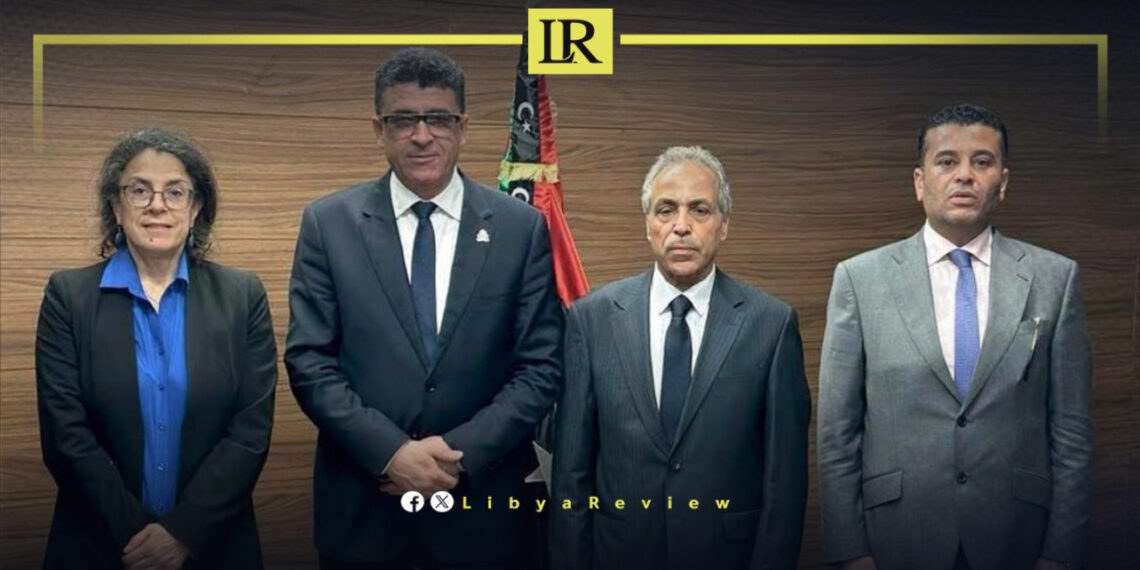In a rare joint meeting, the Heads of Libya’s Audit Bureaus from the western and eastern regions, Khaled Shakshak and Omar Abderabeh respectively, convened to discuss unifying oversight efforts across the country. The meeting was held under the supervision of the Parliamentary Committee on Oversight Bodies from both the House of Representatives and the High Council of State, with the support of the United Nations Support Mission in Libya (UNSMIL) and the participation of World Bank representatives.
The discussions focused on establishing mechanisms to unify the work of the Audit Bureau at a national level and enhance cooperation between the two regional branches. Attendees underscored the importance of maintaining the Bureau’s financial and professional independence, describing it as a cornerstone for effective anti-corruption measures and safeguarding public funds.
The Audit Bureau also stressed the urgency of submitting proposed legislative amendments to the national legislative authority. These reforms aim to strengthen the institution’s autonomy and reinforce its role in monitoring public spending and promoting financial accountability across Libya.
This meeting marks a significant step toward national integration of oversight mechanisms amid ongoing efforts to rebuild unified governance structures in the country.
Libya has been in chaos since a NATO-backed uprising toppled longtime leader Muammar Gaddafi in 2011. The county has for years been split between rival administrations.
Libya’s economy, heavily reliant on oil, has suffered due to the ongoing conflict. The instability has led to fluctuations in oil production and prices, impacting the global oil market and Libya’s economy.
The conflict has led to a significant humanitarian crisis in Libya, with thousands of people killed, and many more displaced. Migrants and refugees using Libya as a transit point to Europe have also faced dire conditions.
The planned elections for December 2021 were delayed due to disagreements over election laws and the eligibility of certain candidates. This delay has raised concerns about the feasibility of a peaceful political transition.
Despite the ceasefire, security remains a significant concern with sporadic fighting and the presence of mercenaries and foreign fighters. The unification of the military and the removal of foreign forces are crucial challenges.


